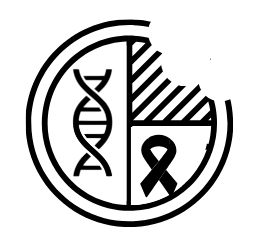Reading time: 4 minutes
Deanna MacNeil
Colorectal cancer is the third most common malignancy in the US, and the second leading cause of cancer-related death worldwide. Though the incidence in the US is declining rapidly overall, the increased incidence of early-onset colorectal cancers is a concerning trend. Although the reasons for this increase remain unknown, the trend may reflect changes in risk factor exposures in early life or young adulthood such as differences in diet, environmental exposures, and lifestyle factors.
Diet is an important modifiable risk factor for colorectal cancer, though few studies have assessed the association between ultra-processed food intake and colorectal cancer risk. Ultra-processed foods are industrial, ready-to-eat or ready-to-heat, and made of little or no whole foods. Until recently, researchers have reported mixed findings on a potential link between ultra-processed food consumption and colorectal cancer, likely due to limitations in study design and sample sizes. However, in a 2022 study published in BMJ, an international group of researchers from São Paulo, Boston, and Montreal found that high consumption of ultra-processed foods in general is associated with increased colorectal cancer risk in men, and that certain subgroups of ultra-processed foods were also associated with increased risk in both men and women.
The researchers prospectively investigated the association between ultra-processed food consumption and colorectal cancer risk in three large groups: men from the Health Professionals Follow-up Study (1986-2014, n= 46 341); women from the Nurses’ Health Study (1986-2014, n=67 425); and women from the Nurses’ Health Study II (1991-2015, n=92 482). Participants had no previous or existing cancer diagnosis at the start of the study. The research team assessed information on dietary intake every four years using food frequency questionnaires. Examples of ultra-processed foods included carbonated drinks, sausages, biscuits, candies, instant soups/noodles, sweet/savory packaged snacks, and sugary milk-based and fruit-based drinks.
During the 24–28 years of follow-up, there were 3216 cases of colorectal cancer diagnosed among study participants. Compared with those in the lowest fifth of ultra-processed food consumption, men in the highest fifth of consumption had a 29% higher risk of developing colorectal cancer. When the researchers examined specific subsites of colorectal cancer separately, they found that high ultra-processed food consumption was associated
with a 72% higher risk of distal colon cancer, but found no significant association for proximal colon cancer or rectal cancer. The researchers did not observe an association between overall ultra-processed food consumption and colorectal cancer among women, but intake of ready-to-eat/heat mixed dishes among women was associated with increased risk. Among other subgroups of ultra-processed foods, ready-to-eat products made of meat, poultry, and seafood, and sugar-sweetened beverages were associated with increased colorectal cancer risk among men. Interestingly, yogurt- and dairy-based desserts were negatively associated with the risk of colorectal cancer among women, suggesting potential protective effects of these ultra-processed foods.
Higher ultra-processed food consumption may lead to poorer overall dietary quality, as well as increased body mass index, which are established risk factors for colorectal cancer. Yet, the findings of this study demonstrated that the association between ultra-processed food and colorectal cancer among men was not related to body mass index, and that the risk of distal colon cancer specifically was independent of different indices of dietary quality. So, what effects of ultra-processed food consumption beyond dietary quality and body mass may be involved in colorectal carcinogenesis? The researchers speculate that the food additives commonly found in ultra-processed foods, such as emulsifiers and artificial sweeteners, may alter the gut microbiome to promote inflammation and carcinogenesis. In addition to additives, ultra-processed foods may also contain contaminants that migrate from plastic packaging, such as bisphenol A (BPA), or others that form after cooking. However, further studies are needed to better understand the potential attributes of ultra-processed foods that contribute to colorectal carcinogenesis.
The prospective cohort design of this study and high follow-up rate minimized the effects of possible recall errors among participants. Additionally, the detailed and repeated measurement of diet and other covariates decreased room for measurement errors. The size of the study and large number of observed cases of colorectal cancer also improved the detection of true associations, statistically. However, because this study was observational and relied on a questionnaire with a limited number of pre-defined options, it cannot fully or perfectly capture the spectrum of ultra-processed food consumption by all participants. Additionally, study participants were US health professionals and predominantly non-Hispanic white individuals, which limits the generalizability of the findings, and may have led to reduced variability in dietary intake.
Overall, the researchers’ findings support the public health importance of limiting certain types of ultra-processed foods for better health outcomes. In addition to the accumulating evidence that high ultra-processed food intake is associated with increased risks of several chronic diseases, this study sheds light on the link between ultra-processed foods and colorectal cancer risk. This link is important, given that diet is an actionable, modifiable risk factor that physicians and young adults alike can focus on to reduce early-onset colorectal cancer incidence.
Edited by Gabrielle Dardis
Work discussed:
L. Wang et al. Association of ultra-processed food consumption with colorectal cancer risk among men and women: results from three prospective US cohort studies. BMJ 2022;378:e068921.
Image credit: Closeup Photo of Doughnuts by Alexander Grey on Pexels

